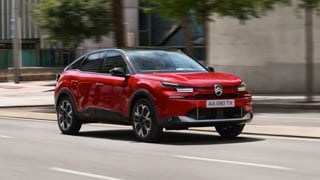The continued decline of diesel market share and the increased provision of total corporate mobility will be two of the key fleet trends for the year ahead, says Dr Jörg Löffler, CEO of Fleet Logistics.
Dr Löffler (pictured) said that he believed that demand for diesel would continue to fall throughout the year across Europe and not just the UK, where the decline in diesel demand has been most marked.
In the UK, Government intervention in the form of increased benefit-in-kind (BIK) taxes for diesel cars and mixed messages over diesel emissions had led many buyers to conclude that diesel power does not have a long-term future, he says.
However, the alternative for the time being in a majority of cases has been to switch back to petrol power, which produces via relatively higher fuel consumption more carbon dioxide emissions. As a result, the UK has seen its car-derived CO2 emissions rise for the first time in 20 years because of the swing away from diesel in the last 6-12 months.
“We expect the trend of falling diesel demand to continue across Europe,” said Dr Löffler, “not least because the TCO for diesel cars will rise as the prices of diesel and gasoline are brought into equilibrium at the pumps, due to governmental changes in fuel duty.
“However, the alternative to diesel is far from straightforward. Gasoline cars burn more fuel and therefore emit more CO2, while hybrid vehicles are fine in an urban environment but out on the open road are far from fuel-efficient and offer no discernible advantage at all.
“Getting the right fleet mix of vehicles will become increasingly important going forward, and we urge most major corporates to discuss the situation in detail with their fleet management provider to arrive at the optimum solution.”
Fleet Logistics also believes that the issue of total corporate mobility will become increasingly important in the near future as many companies examine their total transport and mobility needs and do not restrict this solely to the provision of company cars.
Many companies have turned to Fleet Logistics to ask for advice on setting corporate mobility policy to ensure the best outcomes for all employees and not just those that qualify for company cars.
“To a certain extent we are being pushed by some clients in this area, although with others we have had to adopt a ‘pull’ approach,” he said. “But there is not a one-size-fits-all solution to this issue.
“Amongst companies, like banks and insurance companies for instance, which are largely based in large cities often with younger, well-educated employees with different attitudes towards family life, a policy of providing a car for 365 days of the year might not be appropriate.
“They may want the use of public transport paid for by the company for most of the time, but with access to a company vehicle at certain times. Pool cars may be a more obvious solution in that event and in the long-run car-sharing and other mobility offerings.”
However, with manufacturing companies, for example, which are often based in rural areas, the provision of company vehicles for different parts of the work force, such as service and sales, may still be the most appropriate solution.
“As part of our new business strategy, we are starting to see ourselves very much as a mobility enabler in this market, rather than simply a provider of fleet management services, and are happy to engage with any of our clients to help them arrive at the correct mobility solution for their business,” he said.


















Login to comment
Comments
No comments have been made yet.